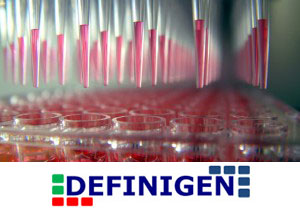CAMBRIDGE, UK, 17th September 2015: Quethera, a gene therapy company developing a treatment for glaucoma that could prevent blindness, has received seed investment funding led by Midven’s Rainbow Seed Fund alongside co-investor Cambridge Enterprise (the commercialisation arm of the University of Cambridge) to continue pre-clinical development of their therapy.
Glaucoma is the leading cause of irreversible blindness worldwide. In England and Wales, the NHS estimates that there are more than 500,000 people who have glaucoma. Many more people have undiagnosed glaucoma because they are unaware that their vision has been damaged by the disease. Recent estimates predict that by 2020 there will be 11 million people worldwide blind due to glaucoma.
High pressure inside the eye is the strongest risk factor for glaucoma, however a significant number of people with glaucoma have eye pressures within the normal range. While glaucoma is a multi-factorial disease, blindness is a direct result of damage to retinal ganglion cells, the nerve cells that connect the eye to the brain via the optic nerve. There are no licensed treatments to prevent nerve damage in glaucoma. All current therapeutic approaches for glaucoma, including all licensed medications as well as laser and surgical techniques, work by lowering the pressure inside the eye. However, even in populations with access to the best treatments currently available, an estimated 1 in 8 patients will still become blind in at least one eye.
Quethera is developing a gene therapy to provide long-term neuroprotection for nerve cells that will maintain vision in patients with all forms of glaucoma. The therapy will enhance the natural biochemical protective cellular pathways that have become degraded in patients with glaucoma. Quethera’s therapy is designed to enable long-term control of the disease via a single injection. The company’s aim is to develop a therapy that prevents progressive visual loss in glaucoma patients and thus reduce the burden of blindness due to the disease worldwide.
Quethera was founded by Dr. Peter Widdowson, who is also Quethera’s CEO, and builds on initial research performed by Professor Keith Martin of the University of Cambridge, Department of Clinical Neurosciences, who is also a Quethera founder. Widdowson said: “This seed funding will enable us to completely examine the efficacy of our novel neuroprotective gene therapy in models of glaucoma, to ensure it displays potent and prolonged activity in preparation for preclinical development.”
Professor Martin said: “It is heart-breaking that so many people with glaucoma around the world continue to go blind. My dream is to reduce this risk both for my own patients and for very many others. I am delighted that the Rainbow Seed Fund and Cambridge Enterprise have supported Quethera in our mission to bring an exciting new therapeutic approach to glaucoma towards the clinic.”
The full press release can be seen here.


